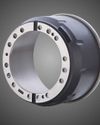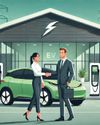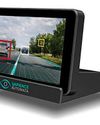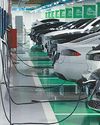
I part one (refer to the October 2020 issue of the magazine) of the two-part environment series, SIAM provided an overview of the supplier and the Original Equipment Manufacturer (OEM) function, regulations and policy, and the economic impact of recycling ELVs. Taking it forward, the second and the final lecture focussed on the technological imperatives in design and material eco-efficiency of ELV recycling. The focus was on vehicular designs supporting vehicle refurbishment. It outlined the role of material designers in incorporating the material advancements at the component design stage and in the manufacturing process on the whole. Dr Hans-Rainer Lotz, Recycling bei Volkswagen AG drew the attention of the Original Equipment Manufacturers (OEMs) to the possible means of turning recycling into an easier and less hazardous process. Averred Dr Lotz, “As per the directive of the European Parliament and the council on ELV (2000), treatment-related requirements include environmental and technical standards for pre-treatment ( removal of fluid and airbags ) and dismantling.” “Less use of hazardous substances in vehicles has been suggested by the directive with restrictions on Mercury (Hg), Cadmium (Cd), Lead (Pb) and Chromium (Cr),” he cited. Dr Lotz admitted to the process challenging OEMs and also expensive to deal with.
Recycling at Volkswagen
Diese Geschichte stammt aus der December 2020-Ausgabe von Auto Components India.
Starten Sie Ihre 7-tägige kostenlose Testversion von Magzter GOLD, um auf Tausende kuratierte Premium-Storys sowie über 8.000 Zeitschriften und Zeitungen zuzugreifen.
Bereits Abonnent ? Anmelden
Diese Geschichte stammt aus der December 2020-Ausgabe von Auto Components India.
Starten Sie Ihre 7-tägige kostenlose Testversion von Magzter GOLD, um auf Tausende kuratierte Premium-Storys sowie über 8.000 Zeitschriften und Zeitungen zuzugreifen.
Bereits Abonnent? Anmelden

U.S. COMMERCE DEPARTMENT ISSUES PRELIMINARY DECISION ON TURKISH BRAKE DRUM SUBSIDIES
On December 06, 2024, the U.S. Department of Commerce announced a preliminary affirmative determination in the Countervailing Duty (CVD) investigation concerning certain brake drums imported from the Republic of Türkiye as per The Brake Report.

BHARAT MOBILITY GLOBAL EXPO 2025 THE COMPONENTS SHOW PREVIEW
The Bharat Mobility Global Expo 2025, slated for January 17-22, is ready to dazzle the world with its expansive and innovative display of automotive and mobility solutions, writes Ashish Bhatia.

INTELLIGENT TRAILERS
Today's trailer customers enjoy access to a complete range of integrated solutions, writes Ashish Bhatia.

UNLOCKING THE POTENTIAL OF USED EVS IN INDIA'S GROWING EV MARKET
India's EV market, valued at USD 2 billion, is on the fast track to becoming the third largest globally by 2025. However, maintaining this momentum will depend heavily on developing a robust second-hand EV market

SAPIENCE HARNESSES AI FOR ROAD SAFETY
Sapience Automata is banking on Al-driven ADAS innovations to curb accidents, and improve fleet efficiency, writes Upendra Kasbekar.

TRAFFIC SURVEILLANCE SOLUTIONS
CP Plus is offering innovative traffic surveillance solutions to enhance on-road safety. writes Richa Tyagi.

LEGACY BRAND RENEWED PURPOSE
As Godrej Enterprises Group celebrates its 127th anniversary, the company unveiled a bold vision to chart a sustainable and innovative path forward, writes Ashish Bhatia.

GLOBAL AUTOMOTIVE SOLUTIONS
Raghavan Sampath, Director of Business Development, India Business Development Division at MediaTek, shared the company's strategic approach of offering global automotive solutions, with Richa Tyagi.

SOUTH KOREAN BATTERY MAKERS' DECLINING SHARE
Three South Korean electric vehicle battery makers saw their combined global market share fall from a year earlier in the first 10 months of 2024 amid robust growth of Chinese rivals, industry data showed on Monday.

UNO MINDA GPT-ENABLED MUSIC SYSTEM
Uno Minda Ltd. has introduced India’s first GPT-enabled Android music system, the WTUNES-464DN-GPT, revolutionizing the in-car experience.